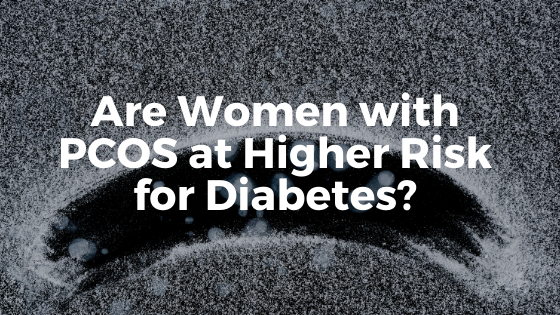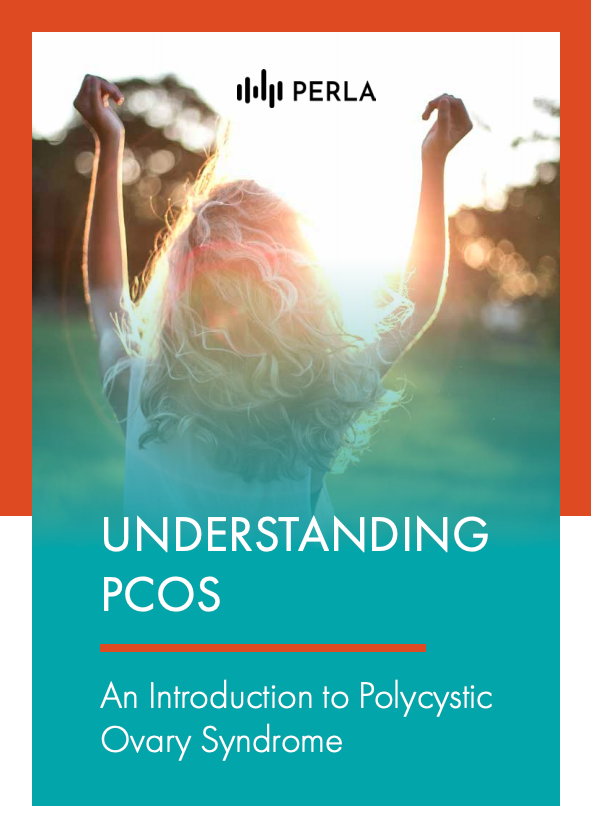Diabetes is a common but serious condition – it is the 7th leading cause of death worldwide.1 About 1.5 million people are diagnosed with diabetes each year in the United States alone. You may have already heard that Polycystic Ovary Syndrome (PCOS) can have an impact on the risk to develop Type 2 Diabetes – but what exactly is the connection? Is there really a higher risk?
PCOS and the Risk for Diabetes
Diabetes has an ancient history: It started in Egypt, Asia, and Arabia around 3500 years ago.2 Over the last two centuries, the number of people affected by Diabetes has rapidly increased in almost all regions of the world. This increase has been linked to lifestyle factors such as: 3,4
- Overweight or obesity
- Physical inactivity
- Modern diet (poor quality of carbohydrates, sugary drinks)
- Increased fast food consumption
- Increased portion sizes
What’s the Connection?
Decades of scientific research have discovered many factors that can lead to the development of diabetes. From initially only identifying two factors, defective insulin secretion and insulin resistance, scientists are now looking at over a dozen factors that contribute to the risk of diabetes.5
One of these factors is the primary androgen (male hormone) testosterone. Interestingly, having a higher than normal level of testosterone is also a common feature of PCOS.6 Having insulin resistance and PCOS raises your chances of getting pre-diabetes or type 2 diabetes in the future.
What is Insulin Resistance?
In healthy individuals, there are checks and balances that tightly regulate blood glucose levels. Why? Because high levels of sugar are toxic to the body. If left unchecked, it can lead to pre-diabetes or diabetes, cause damage to the pancreas and blood vessels, and progress to other severe medical conditions.
The pancreas is an important organ that ensures that cells have adequate glucose and that excess glucose does not linger in the bloodstream. When blood sugar rises, the beta cells in the pancreas release insulin. Think of insulin as a “key” that opens the doors of the cells to let glucose enter and nourish the cells. The excess sugar is stored away as glycogen mainly in the liver, where it will be broken down again into glucose when needed.
In people with insulin resistance, the cells do not respond well to insulin. The result is that sugar cannot enter the cells. Excess sugar builds up in the blood and the cells start to die. The kidneys are forced to work harder to filter the blood and remove excess sugar—creating the classic symptoms of diabetes:
- Sugar in the urine
- Frequent urination
- Constant thirst
According to research, 50 – 70% of women with PCOS have insulin resistance.7 Some experts believe that insulin resistance may play a role in causing PCOS. It was suggested that obesity-linked insulin resistance alters the function of the hypothalamus and pituitary gland, causing overproduction of androgens.8
The Connection to Hyperinsulinemia
Insulin resistance also causes the pancreas to produce more insulin to maintain normal blood sugar levels. But this process creates another problem called hyperinsulinemia where the amount of insulin in the blood higher than normal.9 Too much insulin secretion also promotes inflammation and causes weight gain. It also causes the ovaries to produce excess testosterone, which impairs ovulation.10
Hyperinsulinemia can go unnoticed but some possible symptoms include:
- Fatigue and sleepiness
- Difficulty focusing (brain fog)
- Craving for sugar
- Extreme hunger
- Difficulty losing weight
- Depression
- Acanthosis nigricans (skin darkening in body folds and creases)
Insulin Resistance, Pre-Diabetes and Diabetes
Even with insulin resistance, your body can maintain normal blood glucose levels as long as the pancreas can supply the amount of insulin your body needs.11 However, progressive insulin resistance also causes damage to the beta cells of the pancreas.
Like an overused appliance, the pancreas will be unable to produce adequate amounts of insulin in the long run. So excess sugar stays in your blood. When your body can no longer effectively manage your blood sugar, you may be diagnosed with pre-diabetes or full type 2 diabetes.
Preventing Diabetes when you have PCOS
Type 2 Diabetes and PCOS are both lifelong diseases with no known cure. The good news is they can be improved through weight loss and lifestyle changes. You should consult your doctor, primary care provider or your PCOS care team. They will let you know if you need to be tested for diabetes. Your doctor will also suggest if you need to be referred to other health professionals with experience in diabetic care.
Sources:
- World Health Organization: WHO. The top 10 causes of death. Who.int. https://www.who.int/news-room/fact-sheets/detail/the-top-10-causes-of-death. Published May 24, 2018. Accessed August 9, 2020.
- Lasker SP, McLachlan CS, Wang L, Jelinek HF. Discovery, treatment and management of diabetes. Journal of Diabetology. 2010;1:1–8.
- Ley SH, Schulze MB, Hivert M, Meigs JB, Hu FB. Risk Factors for Type 2 Diabetes. Diabetes in America, NIH Pub No. 17–1468. Bethesda: National Institutes of Health; 2017.
- Ford ES, Williamson DF, Liu S. Weight change and diabetes incidence: findings from a national cohort of US adults. Am J Epidemiol. 1997;146:214–22
- Rodriguez-Saldana J. The Diabetes Textbook. Springer International Publishing; 2019.
- Polycystic ovary syndrome is a condition that can affect a woman’s ability to produce eggs. PCOS is linked with higher levels of circulating insulin, which is characteristic of type 2 diabetes. Diabetes. https://www.diabetes.co.uk/conditions/polycystic-ovary-syndrome.html. Published January 15, 2019. Accessed August 9, 2020.
- Ibricevic D et al. Frequency of prediabetes in women with polycystic ovary syndrome. Med Arch. 2013;67(4):282-285.
- Moghetti P. Insulin Resistance and Polycystic Ovary Syndrome. Curr Pharm Des. 2016;22(36):5526-5534.
- Hyperinsulinemia. Diabetes. https://www.diabetes.co.uk/hyperinsulinemia.html. Published January 15, 2019. Accessed August 10, 2020.
- Corbould A, Kim YB, Youngren JF, Pender C, Kahn BB, Lee A, Dunaif A. Insulin resistance in the skeletal muscle of women with PCOS involves intrinsic and acquired defects in insulin signaling. Am J Physiol Endocrinol Metab. 2005 May;288(5):E1047-54.
- National Institute of Diabetes and Digestive and Kidney Diseases. Insulin Resistance & Prediabetes | NIDDK. National Institute of Diabetes and Digestive and Kidney Diseases. https://www.niddk.nih.gov/health-information/diabetes/overview/what-is-diabetes/prediabetes-insulin-resistance. Published August 10, 2020. Accessed August 10, 2020.


